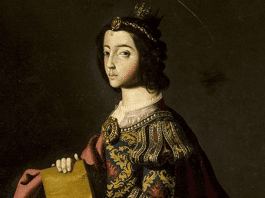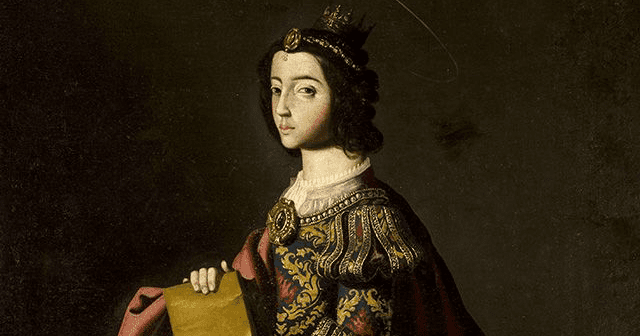
Born around 895, Matilda, the offspring of a German count, entered an arranged marriage with nobleman Henry in her youth. This union soon elevated her to Queen of Germany upon Henry’s ascent to the throne. Despite her elevated status, Matilda embraced a modest life marked by devotion and prayer.
Her benevolence and kindness were apparent to all. Matilda’s queenly role seemed secondary to her maternal instinct. She sought out the sick, comforted them, and offered help to prisoners. Her position did not corrupt her; instead, it served as a bridge to those in distress.
Henry, witnessing his wife’s extraordinary nature, often expressed how she enriched his life and reign. Their arranged marriage blossomed into genuine love.
Matilda’s charitable efforts included founding Benedictine abbeys and utilizing the kingdom’s wealth for the needy, actions supported fully by Henry. This partnership in empathy highlighted their rule, making Henry more attuned to his subjects’ plight, realizing his power to alleviate suffering. Their marriage, a harmonious blend of love and mutual respect, lasted twenty-three years until Henry’s unexpected death in 936.
The king’s death plunged Matilda into deep sorrow. In a gesture of renunciation, she donated her jewels to the church during Mass for Henry’s soul, symbolizing her detachment from worldly possessions and dedicating her life to the divine.
However, Matilda’s life was not without fault. She showed undue favoritism towards her son Henry over Otto in the succession, a decision she later regretted. This partiality eventually led to her estrangement and false accusation by Otto of mismanaging finances after Henry’s demise.
In her later years, Matilda devoted herself to charity and penance, dying peacefully in 968. Buried next to her husband, her life offers a lesson in humility, the power of redemptive suffering, and the importance of forgiveness, even amidst familial discord.
Photo credit: Fæ via Wikimedia Commons
The post Saint Matilda appeared first on uCatholic.
Daily Reading
Wednesday of the Thirty-fourth Week in Ordinary Time
Reading 1 RV 15:1-4 I, John, saw in heaven another sign, great and awe-inspiring: seven angels with the seven last plagues, for through them God’s fury is accomplished. Then I…




